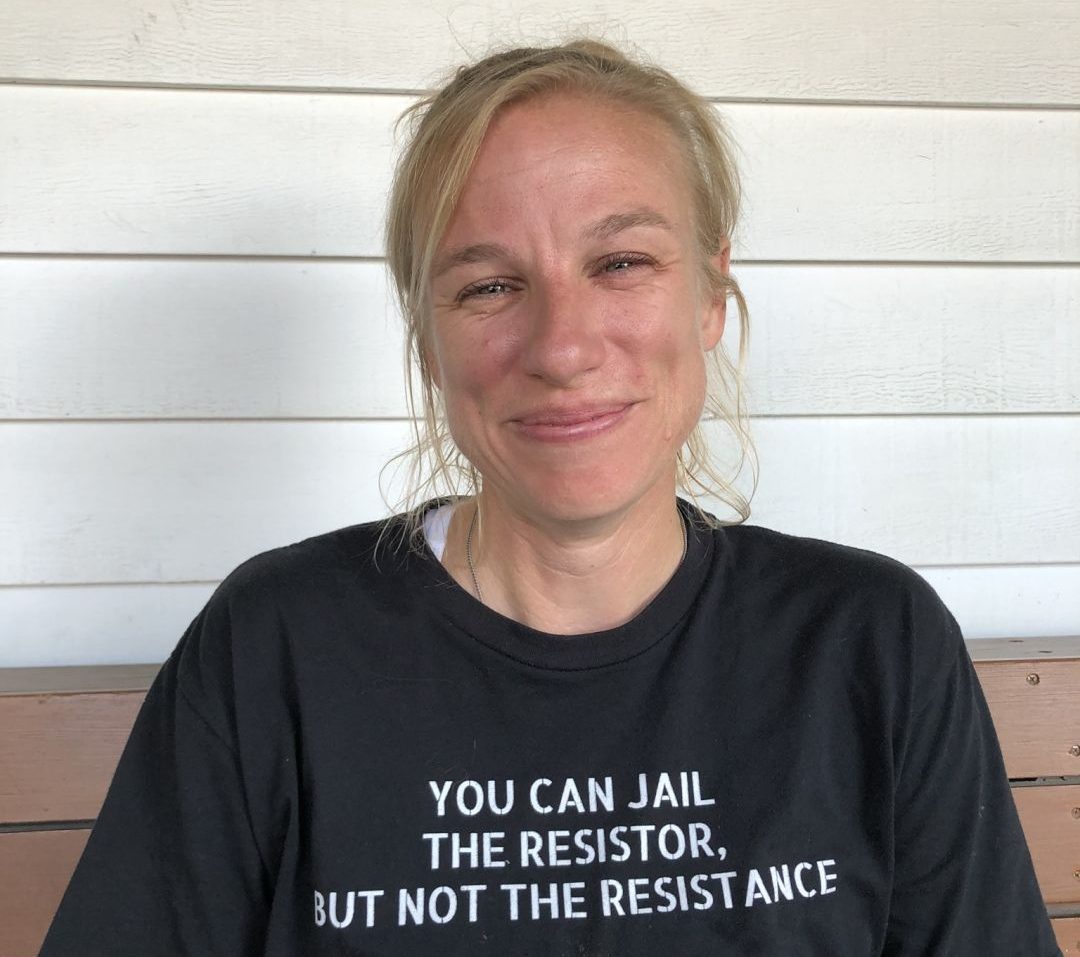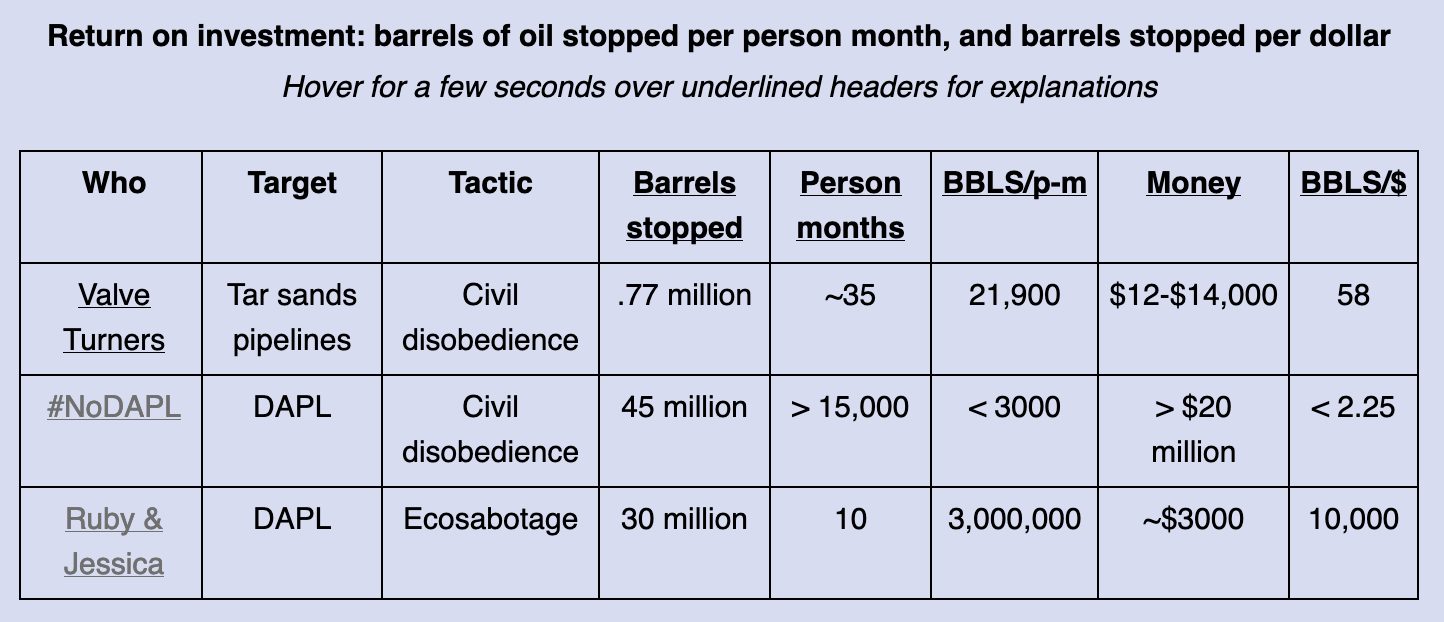
Derrick Jensen: A Deep Terror of Responsibility
Editor’s note: This excerpt comes from Volume 2 of Derrick Jensen’s 2005 book “Endgame,” a long-form exploration of the destruction of the natural world and the moral questions regarding eco-sabotage in defense of the planet. In this segment of the book, Jensen responds to common pacifist talking points. His conclusion is not that violence is desirable, but rather that the complexity of a world filled with atrocities and competing narratives about them fills many people with a deep terror of the responsibility that accompanies facing these realities and choosing to take consequential action.
by Derrick Jensen
We must, we are told, visualize world peace. My first thought on hearing this is always that the abused spouse is so often told that if she can just love her husband enough, he might change. Meanwhile her daughter may very well be wishing she gets a pony for Christmas, but that isn’t going to happen either. My second thought on hearing this is always that visualizing world peace is essentially the semi-secular new age equivalent of praying.
All that said, I have to admit that I actually am a huge fan of visualization. I just normally call it daydreaming. When I was a high jumper in college, I used to more or less constantly picture myself floating over the bar. I’d do this in the shower, driving, walking to classes, certainly all through my classes. Later when I coached high jumping I used to guide my students through visualizations as a routine part of our practice. Now I constantly daydream about my writing. And more importantly I visualize people fighting back. I visualize people knocking down dams. I visualize them taking down the oil and electrical infrastructures. I visualize wild salmon returning in greater numbers every year. I visualize migratory songbirds coming back. I even visualize passenger pigeons returning. So I guess I don’t have a problem with visualizing world peace, so long as people are also working for it. Except that as I made clear early on, civilization requires the importation of resources, which means it requires the use of force to maintain itself. This means that if these folks who are visualizing world peace really are interested in actualizing world peace, they should also be visualizing industrial collapse. And bringing it about.
But I don’t think most of the people with “Visualize World Peace” bumper stickers on their old Saabs are interested in doing the work to take down civilization. It’s too messy. I keep thinking about that line by Gandhi, “We want freedom for our country, but not at the expense or exploitation of others.” I’ve also had this line crammed down my throat more times than I want to consider—often phrased as “You keep saying that in this struggle for the planet that you want to win, but if someone wins, doesn’t that mean someone has to lose, and isn’t that just perpetuating the same old dominator mindset?”—and I’ve always found it both intellectually dishonest and poorly thought-out.
A man tries to rape a woman. She runs away. Her freedom from being raped just came at his expense: he wasn’t able to rape her. Does this mean she exploited him? Of course not. Now let’s do this again. He tries to rape her. She can’t get away. She tries to stop him nonviolently. It doesn’t work. She pulls a gun and shoots him in the head. Obviously her freedom from being raped came at the expense of his life. Did she exploit him? Of course not. It all comes back to what I wrote earlier in this book: defensive rights always trump offensive rights. My right to freedom always trumps your right to exploit me, and if you do try to exploit me, I have the right to stop you, even at some expense to you.
All of this leads us to the fuzzy thinking. Anybody’s freedom from being exploited will always come at the expense of the oppressor’s ability to exploit. The freedom of salmon (and rivers) to survive will come at the expense of those who profit from dams. The freedom of ancient redwood forests to survive will come at the expense of Charles Hurwitz’s bank account. The freedom of the world to survive global warming will come at the expense of those whose lifestyles are based on the burning of oil. It is magical thinking to pretend otherwise.
#
Every choice carries with it costs. If you want air conditioning, you (and many others) are going to have to pay for it. If you want automobiles, you (and many others) are going to have to pay for them. If you want industrial civilization, you (and many others) are going to have to pay for it.
If you want freedom, you will have to fight for it and those who are exploiting you are going to have to pay for it. If you want a livable planet, at this point you will have to fight for it and those who are killing the planet are going to have to pay for it.
#
Schiller’s line, too, that “Peace is rarely denied to the peaceful,” is more magical thinking, and the people who spout it really should be ashamed of themselves. What about the Arawaks, Semay, Mbuti, Hopi? Peace has been denied them. What about the peaceful women who are raped? What about the peaceful children who are abused? What about salmon? What about rivers? What about red- wood trees? What about bison? What about prairie dogs? What about passenger pigeons? I hate to steal a line from someone so odious as John Stossel, but give me a break.
#
Sometimes this book scares me. I’m calling for people to bring down civilization. This will not be bloodless. This will not be welcomed by most of the civilized. But I do not see any other realistic options. I cannot stand by while the world is destroyed. And I see no hope for reform. This is true whether we talk about the lack of realistic possibility of psychological or social reform, or whether we talk about the structural impossibilities of civilization (which requires the importation of resources) ever being sustainable. And really, think about it for a moment: this culture is changing the climate—changing the climate—and those in power are doing nothing to stop it. In fact they’re burning more oil each year than the year before. If changing the earth’s climate is not enough to make them change their ways, nothing will. Nothing. Not petitions, not letters, not votes, not the purchase of hemp hackysacks. Not visualizations. Not sending them love. Nothing. They will not change. They must be stopped. Through any means necessary. We are talking about the life of the planet. They must be stopped.
This scares me.
I sent a note saying all this to my publisher, who wrote me back, “Nothing could be scarier than this culture. I dare you to scare me.”
Back to work.
#
The next pacifist argument is that the ends never justify the means. While adding the word almost just before the word never makes this true for many trivial ends—I would not, for example, be willing to destroy a landbase so I can magnify my bank account—it’s nonsense when it comes to self-defense. Are the people who spout this line saying that the ends of not being raped never justify the means of killing one’s assailant? Are they saying that the ends of saving salmon—who have survived for millions of years—and sturgeon—who have survived since the time of the dinosaurs—never justify the means of removing dams without waiting for approval from those who are saying they wish salmon would go extinct so we can get on with living [sic]? Are they saying that the ends of children free from pesticide-induced cancer and mental retardation are not worth whatever means may be necessary? If so, their sentiments are obscene. We’re not playing some theoretical, spiritual, or philosophical game. We’re talking about survival. We’re talking about poisoned children. We’re talking about a planet being killed. I will do whatever is necessary to defend those I love.
Those who say that ends never justify means are of necessity either sloppy thinkers, hypocrites, or just plain wrong. If ends never justify means, can these people ride in a car? They are by their actions showing that their ends of getting from one place to another justify the means of driving, which means the costs of using oil, with all the evils carried with it. The same is true for the use of any metal, wood, or cloth products, and so on. You could make the argument that the same is true for the act of eating. After all, the ends of keeping yourself alive through eating evidently justify the means of taking the lives of those you eat. Even if you eat nothing but berries, you are depriving others—from birds to bacteria—of the possibility of eating those particular berries.
You could say I’m reducing this argument to absurdity, but I’m not the one who made the claim that ends never justify means. If they want to back off the word never, we can leave the realm of dogma and begin a reasonable discussion of what ends we feel justify what means. I suspect, however, that this would soon lead to another impasse, because my experience of “conversations” with pacifists is that beneath the use of this phrase oftentimes is an unwillingness to take responsibility for one’s own actions coupled with the same old hubris that declares that humans are separate from and better than the rest of the planet. Witness the pacifist who said to me that he would not harm a single human to save an entire run of salmon. He explicitly states—and probably consciously believes—that ends never justify means, but what he really means is that no humans must be harmed by anyone trying to help a landbase or otherwise bringing about social change.
I sometimes get accused of hypocrisy because I use high technology as a tool to try to dismantle technological civilization. While there are certainly ways I’m a hypocrite, that’s not one of them, because I have never claimed that the ends never justify the means. I have stated repeatedly that I’ll do whatever’s necessary to save salmon. That’s not code language for blowing up dams. Whatever’s necessary for me includes writing, giving talks, using computers, rehabilitating streams, singing songs to the salmon, and whatever else may be appropriate.
Setting rhetoric aside, there is simply no factual support for the statement that ends don’t justify means, because it’s a statement of values disguised as a statement of morals. A person who says ends don’t justify means is simply saying: I value process more than outcome. Someone who says ends do justify means is merely saying: I value outcome more than process. Looked at this way, it becomes absurd to make absolute statements about it. There are some ends that justify some means, and there are some ends that do not. Similarly, the same means may be justified by some people for some ends and not justified by or for others (I would, for example, kill someone who attempted to kill those I love, and I would not kill someone who tried to cut me off on the interstate). It is my joy, responsibility, and honor as a sentient being to make those distinctions, and I pity those who do not consider themselves worthy or capable of making them themselves, and who must rely on slogans instead to guide their actions.
#
It’s pretty clear to me that our horror of violence is actually a deep terror of responsibility. We don’t have issues with someone being killed. We have issues about unmediated killing, about doing it ourselves. And of course we have issues with violence flowing the wrong way up the hierarchy.
Derrick Jensen is author of thirty books, including A Language Older Than Words, The Culture of Make Believe, and Endgame. He holds a degree in creative writing from Eastern Washington University, a degree in mineral engineering physics from the Colorado School of Mines, and has taught at Eastern Washington University and Pelican Bay State Prison.




